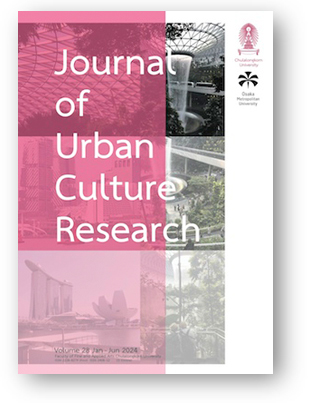Open Source Art Performance Phase 1: Inclusive Design and Implementation of an Open Source Online Art Archive in Thailand
DOI:
https://doi.org/10.14456/jucr.2024.13Keywords:
Inclusive Design; Archive; Open Source; Online Art Archive; Art Education; ThailandAbstract
Open Source Art Performance (OSAP) was established in 2019 to bridge the gap between contemporary art and culture for the people of Thailand. The project aims to create an open-source online archive of art and cultural information that can be used for educational purposes. In the first phase, OSAP utilized documentary research, quantitative research, participatory action research, and archival digitization as the research methodologies to collaborate with four artists, two educational institutes, two art institutes, and two local communities to gather primary data from the artists' work, academic forums, and public events. The collected data was then transformed into an online art archive using a user-friendly website called "https://www.osartperformance.org," which follows the Inclusive Design concept. OSAP organized ten participatory activities in the first phase to encourage public engagement with contemporary art and culture. These events were attended by 1,076 people, both online and offline. The website collected 71 archives, and Google Analytics data from 2020-2021 showed 210,183 social engagement approaches. Overall, this article portrays the successful initiative process of OSAP phase 1 which focuses on creating a website by using the concept idea of inclusive design, which strives to provide a platform for artistic and cultural expression that is accessible to all. The project's collaborative approach ensures that the archive reflects the diversity of contemporary art and culture in Thailand.
Downloads
Published
Versions
- 2024-07-07 (3)
- 2024-07-07 (2)
- 2024-06-24 (1)
How to Cite
Issue
Section
License

This work is licensed under a Creative Commons Attribution-NonCommercial-NoDerivatives 4.0 International License.
Authors authorize the JUCR to publish their materials both in print and online while retaining their full individual copyright. The copyright of JUCR volumes is retained by Chulalongkorn University.
The views and opinions expressed herein are those of the individual author(s) and do not necessarily reflect the policies or opinions of the Journal (JUCR), it editors and staff, Chulalongkorn University, or Osaka Metropolitan University.







